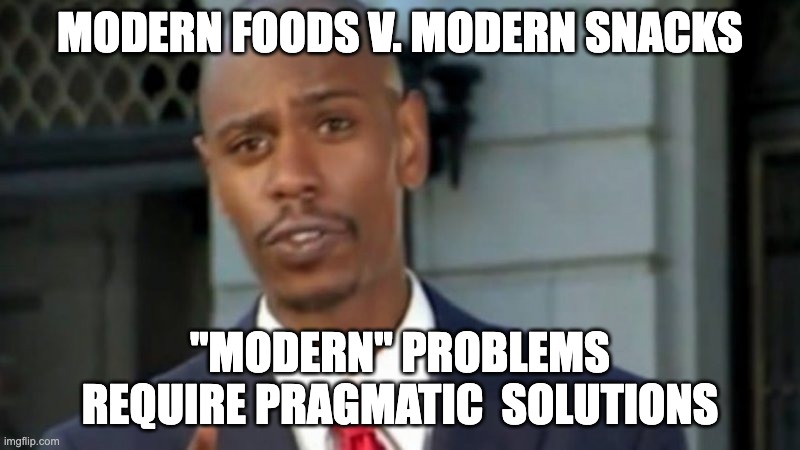
[This post is authored by our former blogger Rahul Bajaj. Rahul is an attorney at Ira Law.]
When assessing whether a plaintiff in a trademark infringement suit is entitled to an interim injunction, the findings of courts on the 3 factors of prima facie case, balance of convenience and irreparable harm are typically uniform, either supporting the grant of an injunction or its refusal. However, the July 2023 judgment of the Delhi High Court in Modern Foods v. Modern Snacks presents a unique case with a layered analysis of the factors involved in granting an injunction. While the Court’s analysis on the prima facie case parameter favoured the plaintiff, the analysis on the balance of convenience and irreparable harm favoured the defendant, resulting in the grant of a restrained interim injunction.
Brief Facts
The judgment deals with two cross suits. The first was filed by the defendant, seeking to restrain the plaintiff from issuing groundless threats with respect to the use of the word ‘MODERN’ in relation to namkeen, snacks and allied products by the defendants. The second was filed by the plaintiff to restrain the defendant from committing trademark/copyright infringement and passing off with respect to the mark ‘MODERN’. The plaintiff’s case was a standard trademark infringement and passing off plea, founded upon its extensive advertisements, market share, goodwill and reputation and the defendant using a similar website and the word ‘MODERN’ in its marks. The defendant’s case was premised on its own goodwill, advertising expenditure, the argument that the plaintiff was estopped from changing its position in light of the stance taken by it in response to the examination report for its mark, etc. A crucial argument by the defendant was that the plaintiff was aware of the defendant’s mark, containing the word ‘MODERN’, since 2003/2010. This submission was based on the defendant’s mark being cited as a conflicting mark in an examination report dated 16.06.2003 and 17.08.2010 for two of the plaintiff’s marks, respectively. The defendant, therefore, contended that the plaintiff had approached the court belatedly, thereby disentitling it to the grant of an injunction.
Holding of the Court – Role of Delay in Injunction Analysis
On prima facie case, the Court categorically held in the plaintiff’s favour. It found that the plaintiff had substantiated that it was the proprietor of the mark ‘MODERN’; the differences between the 2 marks were inconsequential; and the nature of products was such that customers were unlikely to focus on minor differences. However, it noted that the factum of the plaintiff knowing about the defendant’s use of the mark MODERN since 2003 and not acting on it until 2020 was significant in considering the balance of convenience and irreparable harm. The Court relied on the Supreme Court’s judgment in Toyota Jidosha Kabushiki Kaisha, to the effect that delay should not work to the disadvantage of a defendant who has continued to use a registered mark for an extended period during the plaintiff’s silence. On this basis, the Court sought to balance two conflicting interests – protecting trademark rights on the one hand and ensuring fairness in the face of a significant delay in initiating legal action on the other.
It held that the defendant’s use of the mark since 1990, coupled with its registration, strengthens their claim. Additionally, what weighed with the Court was the defendant’s assertion that they are using the mark exclusively for specific goods and have not expanded their product range. To address the plaintiff’s concerns, the court granted a limited interim injunction, confining the defendant’s use of the mark MODERN to the products they were already selling, and for the registrations they had for the mark MODERN, at the time of the filing of the plaintiff’s suit. This was coupled with an obligation to disclose its current products and the marks associated with them, a bi-annual accounting of the sales of products bearing the mark MODERN and a prohibition from using the mark MODERN on other categories of products, during the subsistence of the suit.
Analysis
Since the Supreme Court’s judgment in Midas Hygiene in 2004, it is well settled that delay in approaching the court cannot disentitle a plaintiff from obtaining an interim injunction, especially when the defendant is dishonest [whether dishonesty is a prerequisite to delay not operating as a bar to the grant of an injunction is, to my mind, an open legal question]. The Delhi High Court has affirmed this principle in a consistent line of authorities – Hindustan Pencils, Macleods Pharmaceuticals and Modi-Mundipharma, to name a few. This judgment adds a qualification to that body of law, to the effect that delay can impact the scope of the injunction that is granted to a plaintiff. The decision acknowledges the defendant’s long-standing use of the mark and registration while still providing the plaintiff with the possibility of seeking damages in the event of the defendant’s failure. Arguably, the plaintiff’s continued silence in the face of the defendant’s use of the mark MODERN might even be construed as acquiescence, further supporting moderation in the grant of injunctive relief. Such pragmatic approaches ensure fairness and equity in the just resolution of trademark disputes and repay close study for this reason.
